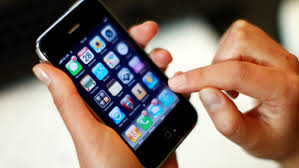 Smartphones are changing lives. However, there are concerns that rising addiction to mobile phones is altering real-life relationships as ‘appdiction’ increases and more people find themselves unable to detach from their device.
Smartphones are changing lives. However, there are concerns that rising addiction to mobile phones is altering real-life relationships as ‘appdiction’ increases and more people find themselves unable to detach from their device.
According to a recently released report from Apigee, based on a survey of 1,000 people structured to reflect the U.S. and U.K. smartphone market, nearly all (92%) say that their mobile device has changed the way they connect with friends. In addition, more than half (58%), say smartphones have changed their health.
Apigee’s ‘2014 Digital Impact Survey’ found that 88% of all smartphone owners don’t intend to spend less time with their mobile device this year and will spend at least as much time with it as they did last year. Thirty percent expect their mobile use to increase and 32% plan to increase the number of apps they download.
Screen Shot 2015-02-18 at 4.24.20 PM.png
“The survey shows that this is not a momentary wave, but a true paradigm shift,” says Pablo Kenney, a research analyst at Apigee.
Smartphones are now deeply embedded in day to day lives and are changing the way people connect and consume. Half (49%) say smartphones have changed the way they date, how they shop (84%), how they bank (78%), how they watch television and movies (70%) and even how they do their job (65%).
The usefulness of mobile and apps in everyday life has led to high consumer expectations, found Apigee.
“People expect a broad range of the businesses and other organizations with which they interact to provide key products and services via apps within the next two years,” says the report.
In particular, mobile users now expect key products and services via apps from their bank (94%), department stores (92%), restaurants (91%), grocery stores (90%), educational institutes (86%), local government (72%) and even their church (49%).
A report released earlier this month by AppsArabia and Real Opinions gives some great insight about the MENA regions smartphone usage. The research which was sponsored by RIM, which mainly aims to increase and support the developers in the region.
The research which was conducted online in both English (23%) and Arabic (77%) with almost 3,000 respondents and contains a vast amount of information regarding the region which should interest all developers and mobile entrepreneurs. Below is a summary of the report’s most important findings:
49% of smartphone users expect to upgrade in the next six months, 70% in the next 12 months
82% who don’t have a smartphone want one and 54% expect to get their first one in the next 12 months
95% of smartphone users have apps installed
Smartphone users have an average of 29 apps installed, while 40% have 10 or less
51% of smartphone users use apps all day long
73% like downloading apps that make their life easier and 57% are interested in game apps
82% of smartphone users with apps download at least once a week
On average, smartphone users download 6 apps each month
In the coming 12 months, 53% of all smartphone users claim they will be buying apps (30% said they wouldn’t and 17% were not sure)
In the coming 12 months,, 24% of all smartphone users claim they will spend more than USD 50 on apps
58% would trade their usage data and receive targeted advertising in return for free app
52% recommend apps to friends while 26% give a simple rating score for those they don’t know to see
33% find out about new apps from their friends while most are discovered doing a search on their smartphone (38%)
Just 14% would evaluate an app based upon general media coverage
62% of all smartphone users surveyed in the Middle East prefer apps to be in English while 39% of users who understand Arabic prefer apps to be in English.

